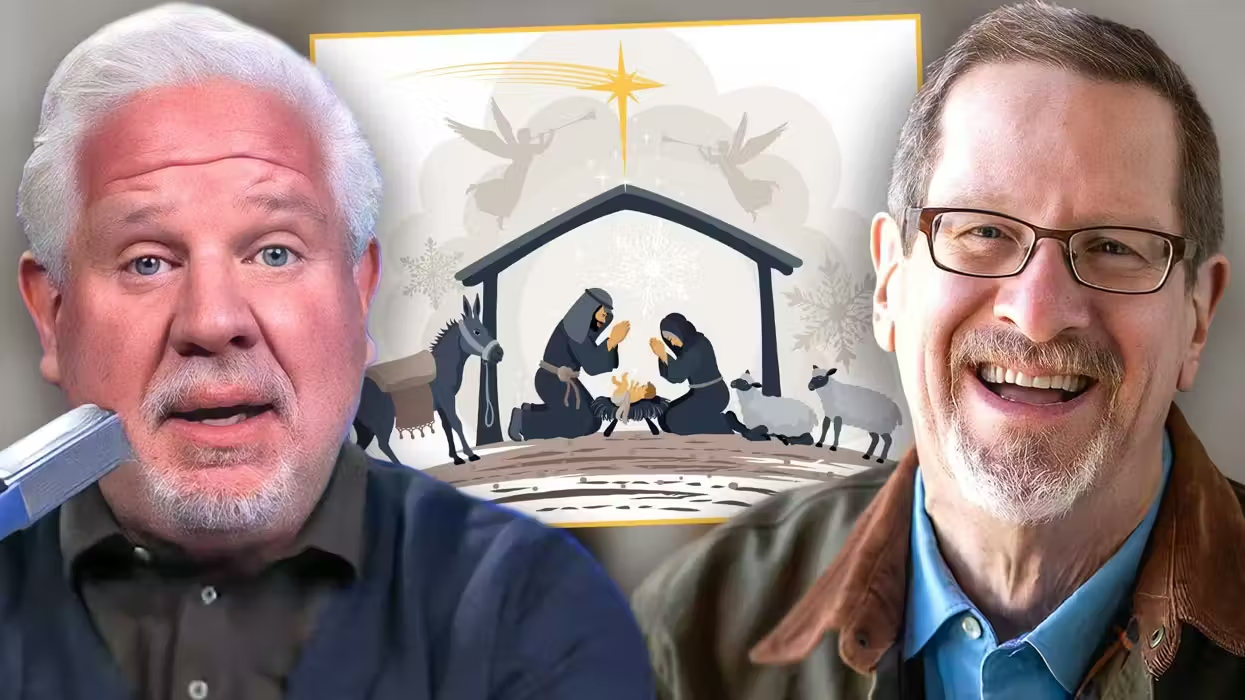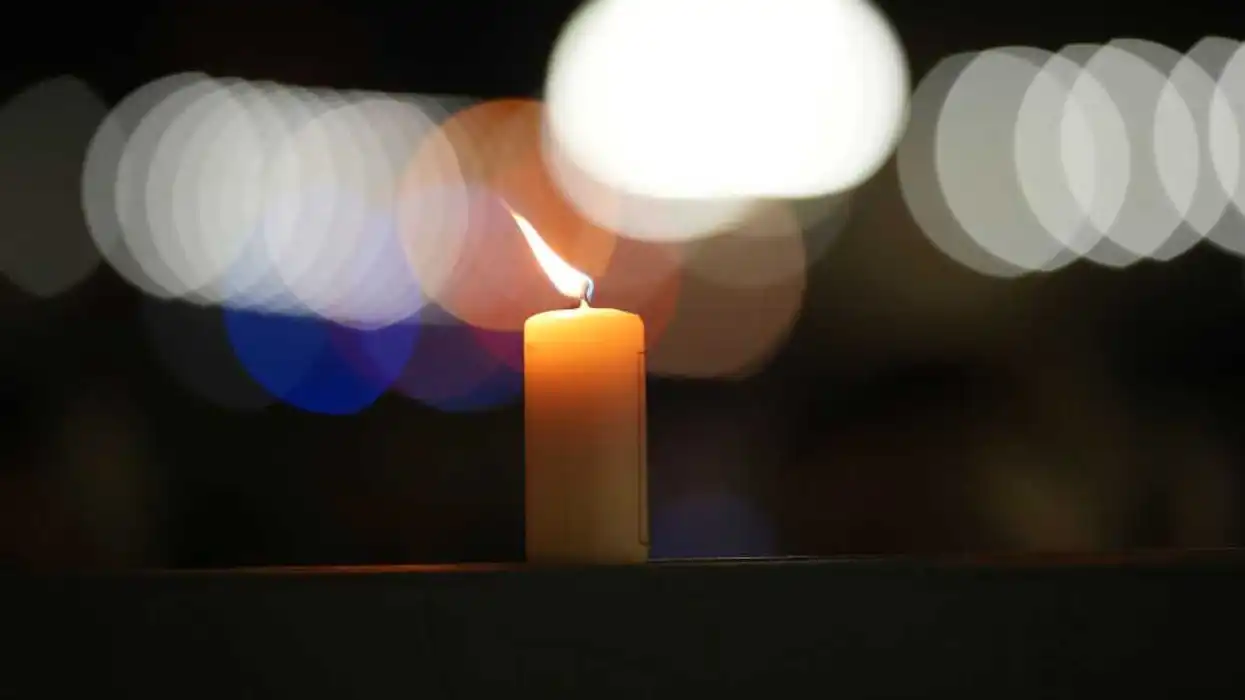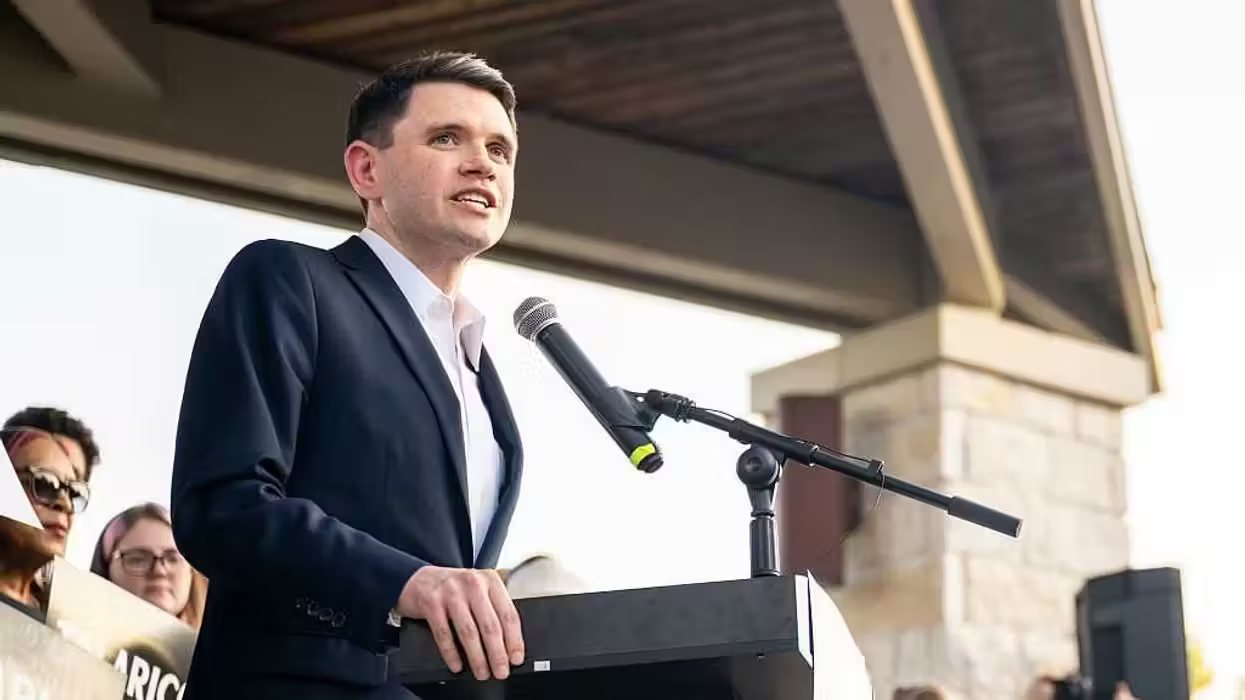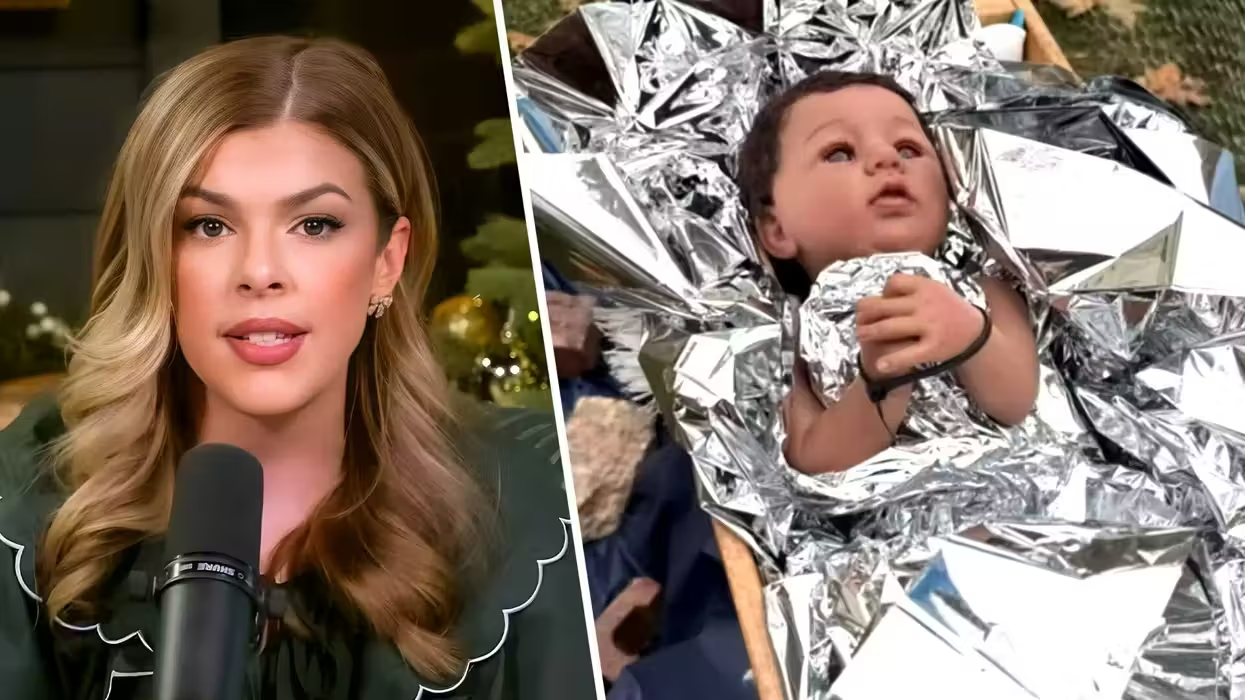© 2025 Blaze Media LLC. All rights reserved.

(AP) Republican presidential front-runner Mitt Romney jumped to a strong lead in the Nevada caucuses Saturday night, reaching for a second straight campaign victory over a field of rivals suddenly struggling to keep pace.
Returns from nine of 17 counties - generally areas that are lightly populated - showed the former Massachusetts governor gaining 38 percent of the vote in a state where fellow Mormons turned out in heavy numbers.
Texas Rep. Ron Paul was running second with 28 percent. Former House Speaker Newt Gingrich was pulling 23 percent and former Pennsylvania Sen. Rick Santorum had 13 percent.
A victory for Romney would cap a week that began with a double-digit win in the Florida primary. That contest was as intense as Nevada's caucuses were sedate - so quiet that they produced little television advertising, no candidate debates and only a modest investment of time by the contenders.
A total of 28 Republican National Convention delegates were at stake in caucuses held across a sprawling state that drew little attention in the nominating campaign but figures to be a fierce battleground in the fall between the winner of the GOP nomination and President Barack Obama. The state's unemployment rate was measured at 12.6 percent in December, the worst in the country.
According to the AP count, Romney began the day with 87 of the 1,144 delegates needed to win the Republican nomination. Gingrich had 26, Santorum 14 and Paul 4.
Preliminary results of a poll of Nevada Republicans entering their caucuses showed that nearly half said the most important consideration in their decision was a candidate's ability to defeat Obama this fall, a finding in line with other states.
About one-quarter of those surveyed said they are Mormon, roughly the same as in 2008, when Romney won with more than a majority of the vote in a multi-candidate field.
The entrance poll was conducted by Edison Research for the Associated Press at 25 randomly selected caucus sites. It included 1,553 interviews and had a margin of sampling error of plus or minus 4 percentage points.
The caucus rules were a demonstration of democracy and a reflection of religious diversity.
Nevada awarded its delegates in proportion to the caucus vote totals, meaning that any candidate who captured at least 3.57 percent of the total number of ballots cast would be rewarded. By contrast, Romney's victory in the Florida primary on Tuesday netted him all 50 of the delegates at stake there.
While most caucuses were held during the day, an exception was Clark County, the state's largest. There, party officials arranged to hold one meeting well after sundown at the request of orthodox Jews who observe bans on driving, writing or other work-a-day activities during the Sabbath.
Romney's victory in the state's 2008 caucuses, coupled with the heavy presence of voters who share his Mormon faith, turned Nevada into something of a way-station on the campaign calendar.
There are just over 175,000 Mormons in the state, roughly 7 percent of the population. But they accounted for nearly a quarter of all 2008 Nevada GOP caucus-goers.
Gingrich said he'd be happy to finish second, behind Romney and ahead of Paul. Paul, a Texas lawmaker, was one of two candidates to air television ads in the state, hoping for a close second-place finish if not an upset.
Romney was the other, joined by Restore Our Future, the ubiquitous organization that supports him and has been heavily involved in earlier states.
Santorum campaigned relatively little in Nevada, although he picked up the support of Sharron Angle, a tea party favorite who won the GOP Senate nomination in a 2010 upset and then lost her race to Senate Majority Leader Harry Reid.
From Nevada, the calendar turns to caucuses in Minnesota and Colorado and a non-binding primary in Missouri on Tuesday.
Maine caucuses end next Saturday, and the next seriously contested states are expected to be primaries in Michigan and Arizona on Feb. 28.
Nevada caucuses, coming four days after the Florida primary, meant little time for the type of intense campaign that characterized the first month of the race.
The most memorable event of the four-day Nevada campaign was an endorsement that flamboyant billionaire Donald Trump bestowed on Romney in Las Vegas in a circus-like atmosphere that followed reports he would back Gingrich. The campaign event was brief, and Paul mocked The Donald and his decision. "I don't think he has that much credibility. I don't understand why we pay attention to him," he said.
By the time Nevada Republicans caucused, Paul was campaigning in Minnesota, Santorum in Colorado.
"The one thing that is on our side is the American people are waking up," Paul said in a speech in Rochester, Minn., that was frequently interrupted by applause. The Texan has yet to win a primary or caucus state.
Santorum, who eked out a victory in Iowa a month ago, has faded since. He said he has raised $1 million online in recent days to help him in the upcoming states.
Gingrich combined campaigning and fundraising in his time in Nevada, in hopes of righting a campaign that was victorious in the South Carolina primary on Jan. 21, only to crater 10 days later in Florida.
Eager to demonstrate he intends to fight on, he announced plans to campaign next week in Ohio, one of several states with a Super Tuesday primary on March 6.
His Florida victory in hand, Romney was acting like a front-runner again, campaigning against Obama more than Gingrich. Restore Our Future took care of the former speaker, airing ads that said he consistently overstated his connections to Ronald Reagan
Want to leave a tip?
We answer to you. Help keep our content free of advertisers and big tech censorship by leaving a tip today.
Want to join the conversation?
Already a subscriber?
more stories
Sign up for the Blaze newsletter
By signing up, you agree to our Privacy Policy and Terms of Use, and agree to receive content that may sometimes include advertisements. You may opt out at any time.
Related Content
© 2025 Blaze Media LLC. All rights reserved.
Get the stories that matter most delivered directly to your inbox.
By signing up, you agree to our Privacy Policy and Terms of Use, and agree to receive content that may sometimes include advertisements. You may opt out at any time.






